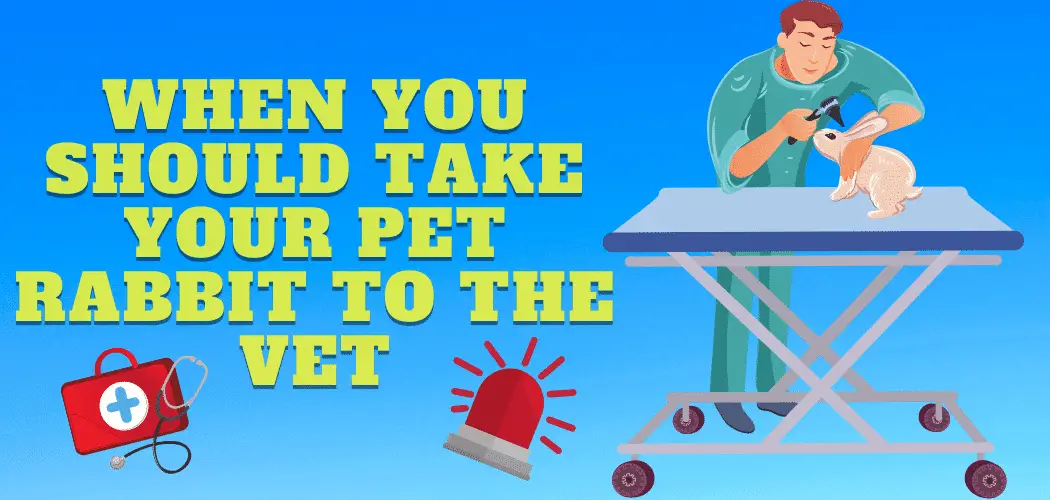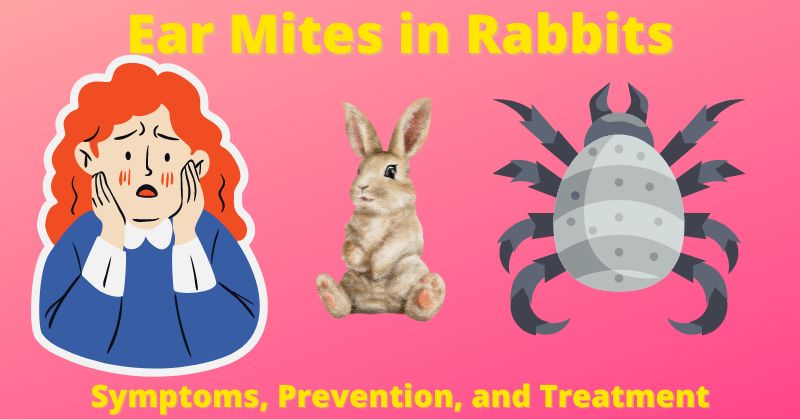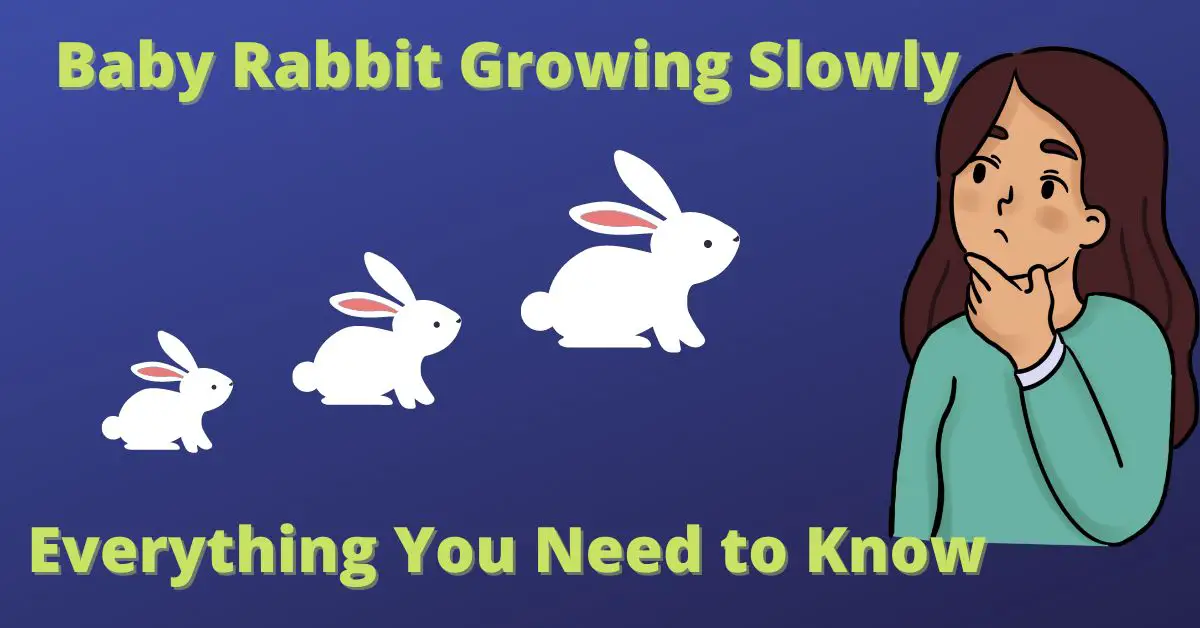Quick Answer: When To Take Your Pet Rabbit to the Vet
Healthy rabbits need to see the vet only once a year. If you’re owning an elderly or ill rabbit, then it’s important that they visit their caregiver every 6 months and if there are any signs of illness in your pet-you should make sure not to miss out on getting treatment right away!
Long description of this topic below
Intro: When To Take Your Pet Rabbit To The Vet
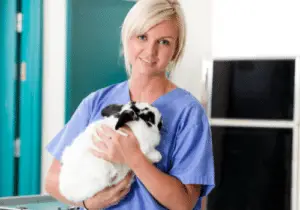
Rabbits are very lovable and make great pets. They have been domesticated for over 1,000 years, so they are not shy around humans.
However, when you see your pet rabbit’s nose get wet with a runny discharge or if it is sneezing more than usual, then it might be time to take them to the vet.
You may also want to do this if they start losing weight without any other changes in their diet or lifestyle.
As a pet owner, you should remember some of the signs that indicate your rabbit is sick or has an injury so you can take them to the vet as soon as possible. They might have trouble breathing and could start panting heavily while their nose gets wet with discharge from their nostrils.
You could also notice them having less energy, refusing to eat or drink anything, and making strange noises like coughing or wheezing.
You should be very aware of your rabbit’s behavior as rabbits are prey animals and therefore are experts in hiding that they are sick. So if you see any changes in the normal behavior of your rabbit, then you should be alerted!
If you notice any of these things happening with your pet rabbit, take it in for a checkup right away. You do not want to waste time because there might be an infection that needs treatment quickly!
How often should you normally take your rabbit to the vet?
When to take your pet rabbit To The Vet, well the best odds to have healthy rabbits for many years is that you see your rabbit veterinarian at least once per year, but they may recommend more frequent visits if there are any rabbit health problems. They might also ask about diet and lifestyle changes that have occurred since.
What are the symptoms of a sick bunny?
Symptoms of illness in rabbits include respiratory symptoms such as nasal discharge, reluctance to eat or drink, and not producing normal bunny sounds like squeaking.
The vast majority of pet bunnies have a disease that is classified as either infectious (caused by a virus or bacteria), non-infectious (e.g., cancer, genetic syndrome), traumatic, or neoplastic in origin. A small subset are genetically prone to developing obesity; these cases typically have no abnormal clinical signs and do not need veterinary care.
While there is no single test for any specific disease, the diagnosis will be through a combined approach of history taking and physical examination in conjunction with blood tests and x-rays where appropriate.
When to take your rabbit to the vet?
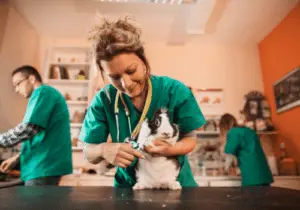
If your rabbit has any of the mentioned symptoms in this article, it is time to take them in for a checkup at your local vet.
Some of the symptoms can be very serious and need to be treated as soon as possible for medical care!
Snuffles:
Snuffles are usually caused by viral or bacterial infections. It is a chronic, progressive disease that causes the rabbit’s eyes to become red and swollen, and it may have nasal discharge from one or both nostrils.
The diagnosis of snuffles can be done through a cytological examination (a microscopic evaluation) of nose secretions; however other tests such as a nasal swab culture might be necessary.
The rabbit may also have other symptoms, such as conjunctivitis and rhinitis (inflammation of the nose), so it is important to get samples from all these areas for testing.
As you can see, when a rabbit has symptoms such as sneezing and discharges from its nose, then it might be time to take them to the vet. You do not want your pet bunny to get an infection that could turn into something worse!
Parasites:
Pet rabbits are prone to infections by parasites, which can be transmitted through contact with other animals.
Symptoms of a rabbit infected by parasites include weight loss, lethargy or fever (high body temperature), poor appetite, and diarrhea. These symptoms may lead to an incomplete digestion system since they would not have enough nutrients from the food consumed.
The diagnosis of parasitic infection in rabbits is done by examining the feces or making a fecal smear.
If your rabbit has any signs that it might be infected, then take them to the vet as soon as possible! They will do everything they can for you and your pet so both of you have a healthy life together.
Dental Problems:
The rabbit’s teeth grow continuously and poor tooth health can lead to numerous ailments, so you should take care of your bun’s teeth. Poor dental condition is common in rabbits which makes it important for them to have their mouth taken care of regularly.
Signs that a bunny has issues with his or her oral health include drooling, matted fur on the legs, pain while chewing food because overgrown backside cheek incisors are not aligned properly and infections due to bacterial buildup around decayed areas caused by lack of proper brushing.
A rabbit’s teeth are delicate and need plenty of care. It is important to make sure that your furry friend gets a diet high in fiber but low in calcium, which will help prevent tooth decay.
If your bunny’s teeth are not taken care of, then they will become overgrown and the rabbit will experience pain while chewing. This is one reason why it needs to be seen by a vet!
GI Stasis:
GI stasis is a condition that hinders the movement of food through the system (digestive tract). It can be caused by hairballs and blockages in various places.
Symptoms include hairball buildup and difficulty eating anything, which will lead to weight loss, diarrhea, lethargy/high body temperature (fever), and poor appetite. A rabbit may also experience skin discoloration or lesions on fur.
In order to be a healthy rabbit, it is important that the digestive tract moves things along. When this stops happening, there can be serious consequences such as hairballs and blockages in various places of the stomach tract.
To avoid problems like these from ever occurring you should make sure your fuzzy friend has a high-fiber diet so fiber will keep everything moving smoothly!
A rabbit is usually considered healthy if the digestive tract does not stop moving things along, like hairballs and blockages in various places. The vet will be able to tell if there are any problems by examining the feces.
Sore Hocks (Pododermatitis):
Sore hocks are a condition in rabbits where the skin on the foot becomes ulcerated and painful. This condition can be caused by extreme bacterial infections, where these bacteria are able to invade all layers of the skin and decrease healing ability.
Another cause may be improper or excessive licking by the rabbit which leads to trauma and injury because of the abrasiveness of their tongue.
A veterinarian will diagnose sore hocks with help from a fur-clip exam, blood work, x-rays, and analysis of the wound material. One way to prevent this infection is by clipping your bunny’s claws on a regular basis.
Heatstroke:
Heatstroke is a condition in rabbits where the temperature rises to greater than 82 degrees Fahrenheit. Normally it is recommended with an ambient temperature of 61 to 72 degrees Fahrenheit for rabbits.
There are ways to prevent this, such as making sure they have plenty of water and shade, and checking them for signs such as excessive panting or drooling in order to make sure they’re ok.
Never use cold water, the sudden shock from cold water could cause your rabbit to have a heart attack. If these symptoms occur, then take your rabbit to a vet as quickly as possible!
Wry Neck:
A wry neck is a condition in rabbits where the head and neck are turned to one side. This can be caused by trauma, injury, or tumors in the neck. The veterinarian will perform x-rays and scans in order to see if there is any sign of this.
If no other symptoms of pain or inflammation have been experienced then it could be due to congenital defects or infection. Congenital defects can either be genetic or may have happened during pregnancy in female rabbits.
Poisoning:
A rabbit could be poisoned at any time due to the various types of dangers around your home. These dangers could include pesticides, fertilizers, drugs, cleaning chemicals, household products, and plants like ragweed or ivy.
Some symptoms that might indicate poisoning are drooling, lethargy, diarrhea, and excess salivating. If you suspect that your pet is suffering from poisoning then take them to a veterinarian as soon as possible!
Abscesses:
An abscess is when pus collects in certain tissues or organs. The pus can either be thick and yellowish, or thin and watery. This condition is common in rabbits because their immune system and respiratory tract are not very strong. It can also happen if there’s been a puncture wound to the skin.
The vet will use syringes to extract the pus from the abscessed area. Antibiotics are usually used to avoid any further infections that could occur before it heals up on their own. Once the wound has healed, it will need to be cleaned so bacteria don’t get trapped inside.
Urinary Sludge and Stones (Urolithiasis):
Urinary sludge (or bladder concretions) is a condition in rabbits where there is an excess of urinary calcium and magnesium in the bladder, which causes a build-up of minerals.
This might also be due to hypoadrenocorticism, kidney problems, or calcified stones. The symptoms of this condition include difficulty urinating and increased frequency.
The veterinarian will try to diagnose the condition by looking at urine samples and doing blood work or X-rays. Treatment such as antibiotics, entering a rabbit’s bladder with a tube, and surgery are often needed to treat the condition.
Myxomatosis:
This illness is caused by the myxoma virus, which can be spread from wild rabbits to other animals through bites and contact with infected mosquitoes. The incubation period for this disease generally ranges between 1-3 days, where signs include purulent (pus) conjunctivitis as well as lethargy in an animal’s behavior.
Subcutaneous swelling may extend around these areas of the body: eyes, ears, and genital region. Treatment involves supportive care such as fluids via syringes or feeding tubes that are inserted into their stomachs; anti-inflammatory drugs like dexamethasone tablets help reduce inflammation on swollen joints while pain relievers provide relief for the pain.
It is highly recommended to get your rabbit vaccinated against Myxomatosis, especially if they are going to be outside, or near any potentially infected mosquitoes.
Conclusion
Rabbits can be great pets for indoor households, but it’s important to know when you should take them to the vet. If your rabbit is exhibiting any of these symptoms such as a wry neck, poisoning, abscesses, myxomatosis, and urolithiasis then they need immediate veterinary care!
Check out this article that lists what signs may indicate an illness and how you can help get treatment if needed. It might not always be easy to keep up with all their needs.
But most important thing is to watch your rabbit’s behavior, and if you see any changes that worry you then make contact with your vet immediately.

